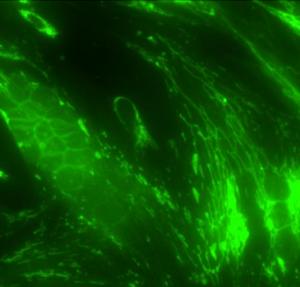In recent years, scientists have discovered that a family of enzymes called sirtuins can dramatically extend life in organisms as diverse as yeast, worms, and flies. They may also be able to control age-associated metabolic disorders, including obesity and type II diabetes.
Naturally occurring substances have been shown to activate sirtuins, including a constituent of red wine called resveratrol – although an individual would need to drink about two cases of wine a day to derive a clinically effective dose of resveratrol. Still, the findings have energized a number of scientific groups and biotechnology companies, all of which are now eagerly searching for drug candidates able to boost sirtuin activity. The public-health benefits of such an “anti-aging” drug would be substantial – as would the economic returns.
Now, a new study from scientists at The Wistar Institute points to another strategy for activating sirtuins to unleash their anti-aging powers.
Continue reading “Does inhibiting a component of niacin point the way to anti-aging drugs?” →



